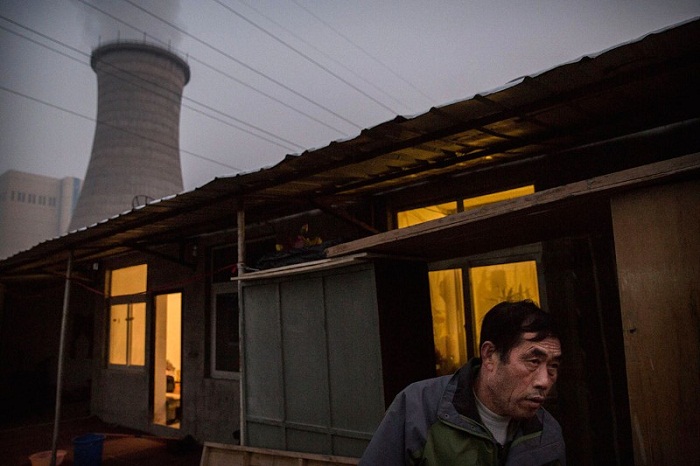2015 to see the first drop in fossil fuel emissions as GDP grows

Emissions have fallen briefly in the past during global recessions, but this would be the first fall during a period of economic growth. Global GDP is expected to rise 3.1 per cent this year.
Some claim this shows that emissions are being “decoupled” from economic growth, but unfortunately it is more likely to be a short-term blip. Fossil fuel emissions are expected to resume rising soon and to continue to increase until at least the 2030s.
“I would not think that this is a trend at all,” says Corinne Le Quere of the University of East Anglia, UK, a member of the team who carried out the research. “It is very unlikely that this is the peak in global emissions.”
Record jump
The projected fall is mainly due to China burning less coal, because of its economic slowdown and efforts to reduce air pollution. However, China’s emissions are expected to rise again before peaking, and globally the growth in emissions from developing countries such as India will outweigh the small declines in some developed countries.
The team cautions that there are considerable uncertainties in emissions estimates. Even if their figures are correct, however, it does not necessarily mean less carbon dioxide entered the atmosphere in 2015. Total emissions as a result of human activity, including things such as deforestation and the destruction of peat most probably rose over the year, Le Quere says.
In fact, levels of carbon dioxide in the atmosphere could jump by a record amount in the next 12 months. The biggest recorded jump occurred during the 1997 El Niño in part due to fires releasing lots of carbon, and some researchers expect an even bigger jump during the current record-breaking El Niño.
To halt the rise in CO2 levels, says Le Quere, we need to get emissions down to practically zero. So we still have a huge mountain to climb, she says – but it will be ever so slighter smaller than we thought if fossil fuel emissions do indeed fall this year.















































